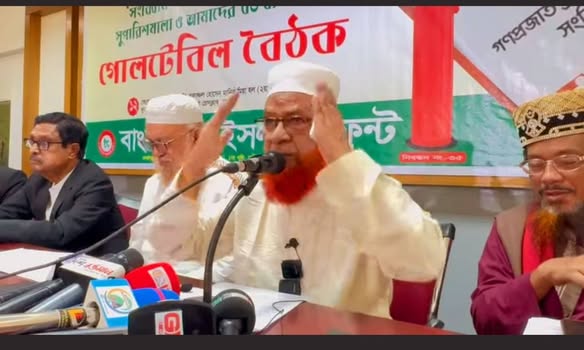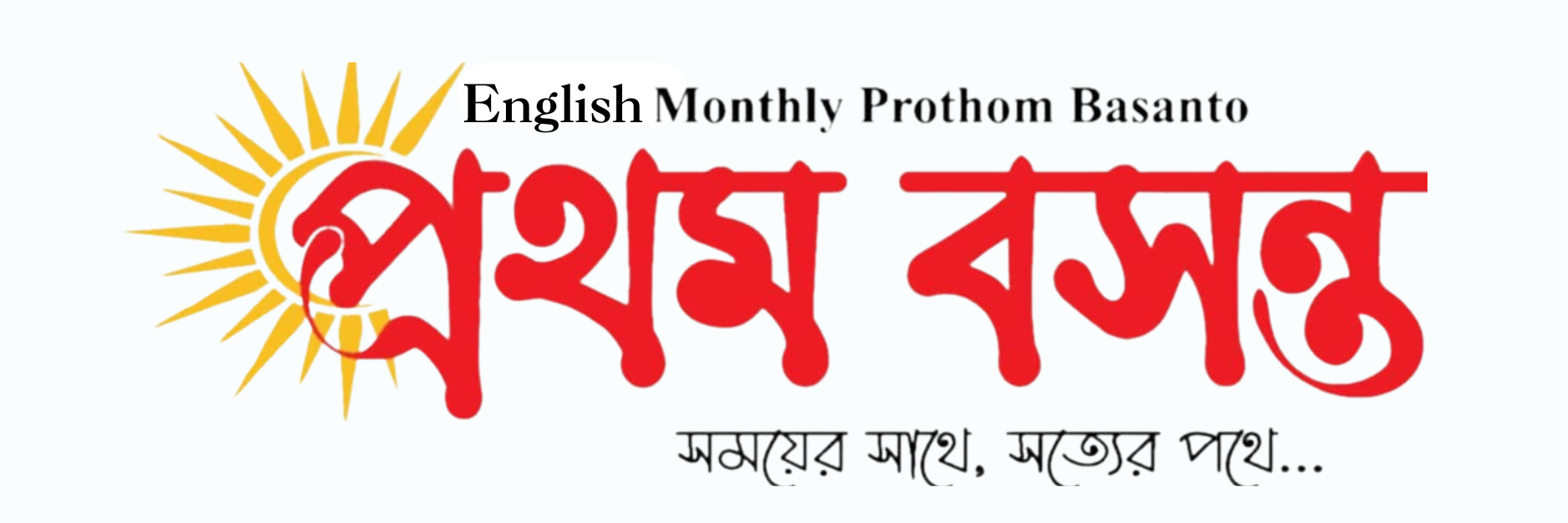
The Bangladesh Islami Front has demanded the introduction of a proportional electoral system. The party’s chairman, M A Matin, expressed his views on this issue at a recent roundtable discussion. He stated that the current first-past-the-post electoral system is unfavorable for small and medium-sized political parties. As a result, various political ideologies and the true opinions of the people are not adequately reflected in the parliament.
Matin further mentioned that introducing a proportional electoral system would strengthen democracy and ensure the selection of the correct political representatives for the people. He claimed that this system would allow for the proper evaluation of every vote and create an environment for healthy competition among political parties.
Other speakers at the roundtable discussion also discussed the necessity of reforming the electoral system and called for a detailed national-level discussion on the issue. The Bangladesh Islami Front has long been advocating for the implementation of a proportional electoral system in the country. The party believes that if this system is implemented, political stability in the country will increase, and multiparty democracy will become more effective.
Why is a proportional electoral system important?
Equal Representation: Ensuring parliamentary seats for parties based on their proportion of votes.
Strengthening Democracy: Proper evaluation of every vote and accurate reflection of public opinion.
Preserving Political Diversity: Creating equal opportunities for small and emerging parties.
Experts have emphasized the need for further discussion and review at the national level regarding changes to Bangladesh’s current electoral system and the implementation of a proportional electoral system.
Roundtable Discussion on “Recommendations of the Constitutional Reform Commission and Our Position”
The Bangladesh Islami Front organized a roundtable discussion titled “Recommendations of the Constitutional Reform Commission and Our Position.” This significant discussion was attended by prominent politicians, legal experts, intellectuals, journalists, writers, researchers, and representatives from various sectors of society.
The recommendations proposed by the Constitutional Reform Commission were thoroughly analyzed at the meeting. Discussions were held on how effective these recommendations would be in the country’s social, political, and religious contexts. The speakers shared their opinions on the need for amendments and revisions to the constitution, their potential impact, and the necessary steps to maintain national unity and stability.
Through this roundtable discussion, efforts are being made to outline a well-structured and acceptable proposal that could serve as a guideline for policymakers in the future.
Key Points from the Roundtable Discussion:
Honorable President, Key Speaker, Representatives of Various Political Organizations, Other Discussants, and Distinguished Guests,
Assalamu Alaikum.
The Bangladesh Islami Front operates its political agenda in the greater interest of the country and nation, adhering to the noble ideals of the Prophet (PBUH), Sufi philosophy, indigenous culture, and the spirit of communal harmony, as well as the aspirations of the Liberation War and the spirit of 2024. This roundtable discussion is part of that continuity.
Through the great Liberation War of 1971, we achieved independence and sovereignty for Bangladesh. The country’s constitution was formulated in 1972 within a short time. However, repeated amendments have caused damage to this constitution. Most recently, the current constitution has been used as a tool by autocratic rulers to consolidate individual-centric power.
With the July 24 Revolution, the student and public uprising overthrew the autocratic government. To uphold the great aspirations of the Liberation War—equality, human dignity, and social justice—the interim government took steps to implement comprehensive reforms to the state structure. The Constitutional Reform Commission has already submitted its recommendations to the government. Although it is not possible to conduct a detailed review of these recommendations within a short period, we are presenting the Bangladesh Islami Front’s initial stance on some fundamental issues. We hope that today’s roundtable discussion will enrich our perspective and contribute to the nation’s constitutional progress.
(A) Structure of the Constitution:
The current constitution consists of 11 parts, 153 articles, and 7 schedules, but the recommendations suggest limiting it to 9 parts, making fundamental amendments to various articles, and omitting 3 schedules.
(B) Preamble:
The proposed preamble gives due recognition to the Liberation War of 1971 and highlights the unity of students and people against fascist rule in 2024.
We believe that while glorifying the 2024 Revolution, the sanctity of the 1971 Liberation War should not be undermined.
(C) Governance System:
The recommendations suggest replacing the term “Republic” with “Citizen Governance” and “People’s Republic of Bangladesh” with “People’s Democratic Bangladesh”.
All languages spoken by Bangladeshi citizens are recognized.
(D) Fundamental Rights and Freedoms:
Alongside existing fundamental rights, food, education, healthcare, housing, voting rights, and consumer protection have been proposed as fundamental rights. This could strengthen the recognition and protection of citizens’ rights.
(E) Legislature:
A four-year bicameral legislature has been proposed.
The lower house (National Parliament) will have 400 elected seats, of which 100 will be reserved for women.
The upper house (Senate) will consist of 100 proportionally elected members and five presidential nominees, totaling 105 members.
One individual can hold only one of the following positions: Member of Parliament, Prime Minister, Parliamentary Leader, or Party Chief.
(F) Executive Branch:
A balance of power between the President and Prime Minister is proposed, which could help prevent the Prime Minister’s authoritarian role.
The formation of a National Constitutional Council (NCC) to maintain balance among the three branches of the state is a landmark initiative.
The two-term limit for the President and Prime Minister will prevent individuals from permanently holding power.
(G) Judiciary:
Proposals include establishing permanent High Court benches at divisional levels, formulating a policy for judicial appointments, and setting up a Judicial Secretariat. These steps could enhance the independence and efficiency of the judiciary.
The proposal for a permanent Attorney Service will reduce political influence in the judiciary and ensure justice.
(H) Constitutional Commissions:
Proposals include forming five constitutional commissions, including the Anti-Corruption Commission.
We demand an Interfaith Harmony Commission and a National Shariah Council under its jurisdiction. This will help maintain religious and communal harmony and prevent sectarian conflicts.
Compared to the current constitution, the proposed reforms appear more sustainable, relevant, and up-to-date. However, we hope for further national discussions to make the recommendations more inclusive and universally acceptable.
Finally, the Bangladesh Islami Front demands that the amended constitution be finalized through a national referendum before implementation.
